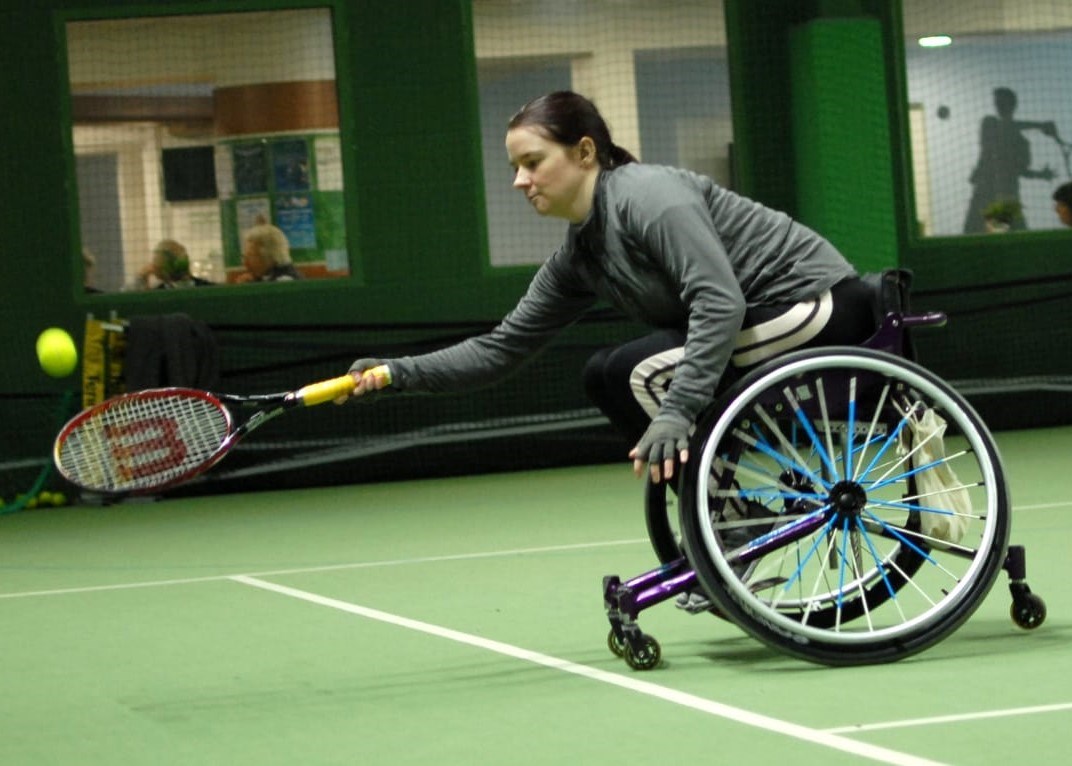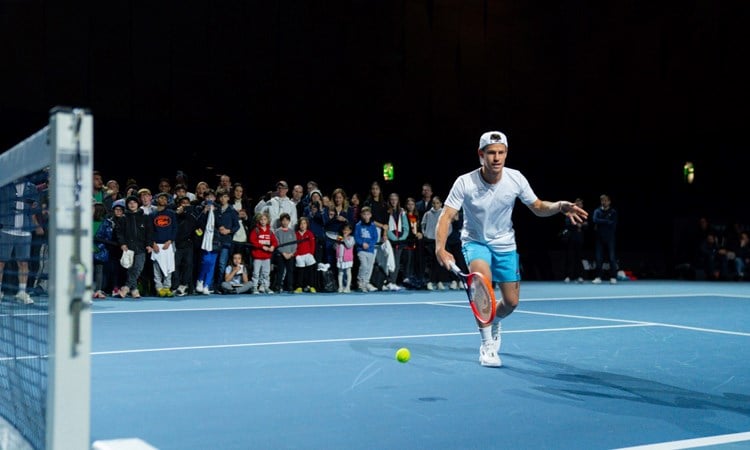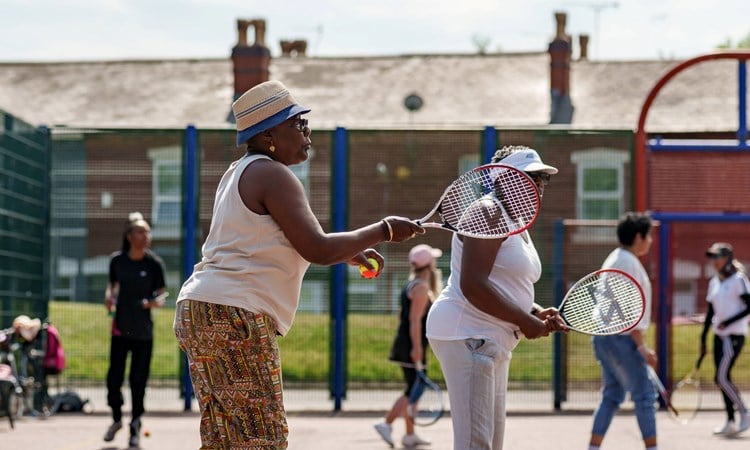
How wheelchair tennis changed and saved one woman's life
• 4 MINUTE READ
Rae Abbott is a 27-year-old, as of March 2024 wheelchair tennis player, living in Devon. Having started playing tennis as a child, she has recently returned to the sport as a wheelchair player.
Rae’s condition, Ehlers Danlos Syndrome, limited her ability to play as a teenager, but she was left with a desire to return to the sport in some way.
After playing in a wheelchair group in Ivybridge for two years, Rae received a grant from the Dan Maskell Tennis Trust (funded through the LTA Tennis Foundation’s grant making programme) which was used to fund one-to-one lessons with her coach, Fiona Murphy - a highly experienced coach, specialising in disability tennis.
This is Rae’s story.
I played standing tennis as a child, starting from Mini Red all the way up to the highest Raw group as a teenager. I didn’t play competitively at all, I only attended my coaching groups, but I loved it. Tennis has always been my safe place and escape.
As a teenager, my disabilities progressed, and I didn’t have the stamina or tolerance for standing tennis anymore. It was gutting to lose something so important to me.
It wasn’t until two years ago that I considered wheelchair tennis for myself. My dad had been playing for many years and I volunteered to practise with him one day. I tried his chair (which was far too big for me) and I just loved it. It took me a little while to pick up the chair skills, especially with a racquet in hand too but it was so exciting to realise I could have tennis back in my life.
After a few more practices together, of us taking it in turns to play in the chair, I joined my dad at the wheelchair group in Ivybridge - which we both still attend every week.
Wheelchair tennis has completely changed and saved my life. My physical disability and my mental health had taken so much from me and to have some freedom and accomplishment back is incredible. To be able to reconnect with a passion I had as a child and teen, but had to let go of was really meaningful. I've made friends and found confidence in ways I’ve never experienced before.
The grant from Dan Maskell gave me access to one-to-one coaching, which was something I couldn’t afford. My disabilities don’t fit into classification groups for competing at a higher level unfortunately, but I now love to compete at novice level when possible.
Playing wheelchair tennis has brought so much to my life, including confidence, and I don’t just mean in my tennis skills, but in all areas of my life
My coaching sessions with Fiona help me improve my skills in areas specific to me and in the format I learn best. I've learnt an awful lot from our group coaching, but the skills we focus on in my individual lessons are invaluable and have vastly improved my play. I have far more confidence in my ability when playing in tournaments now and I can’t wait to play in the upcoming events this year and put even more of these skills into practice.
We've worked on my serve, backhand, accuracy and target practice, depth and power, winning shots, reading my opponent’s play to anticipate their next shot and their strengths and weaknesses, and so many more individual skills. I can now rely on my ability and feel confident in my accuracy.
Feeling confident in my ability and proud of what I can achieve within tennis, adds so much value to my life overall. Believing you are good at something is an amazing feeling, especially for someone like me who has never had confidence in myself or believed I held any value.
We have very nearly used up all the sessions that the grant funded for me, but these last two will be perfectly timed to really work on my vital skills for the tournaments coming up over the next two months. I would love to go back in time to a year ago and compare my play to now, but I absolutely know I'm playing so much better now and have learnt so many new skills. I actually believe I have a chance at winning my upcoming tournaments, or at least make it to the finals.
Being part of a community
I've always struggled to make friends, so tennis has been the majority of my social time especially as an adult. I've made amazing friends in our weekly group and also met even more lovely people at tournaments and training events. I absolutely love being in an environment of people all with one passion in common. Whilst we have all come to play the sport for different reasons, we understand each other, and I’ve never met such a kind and welcoming group of people than those I’ve met through wheelchair tennis.
If you’d asked anyone five years ago what my personality was like, they would have said that I was incredibly shy, quiet and anxious. I struggled to join in with any activity or speak to anyone who wasn’t my closest family. Whilst I’m still a shy person now, I think most people in my life would agree that I’ve changed a lot and grown massively in confidence. And that is absolutely down to playing wheelchair tennis and the community I have become part of. I’ll say it again because I mean it so sincerely - wheelchair tennis has changed and saved my life.
Ways to play tennis
Rae's story is a fantastic example of playing tennis your own way. Whether you want to learn the basics of tennis, or find an alternative form of the sport that's easier on your body but keeps your mind active, there are multiple different ways you can get on court and play.





